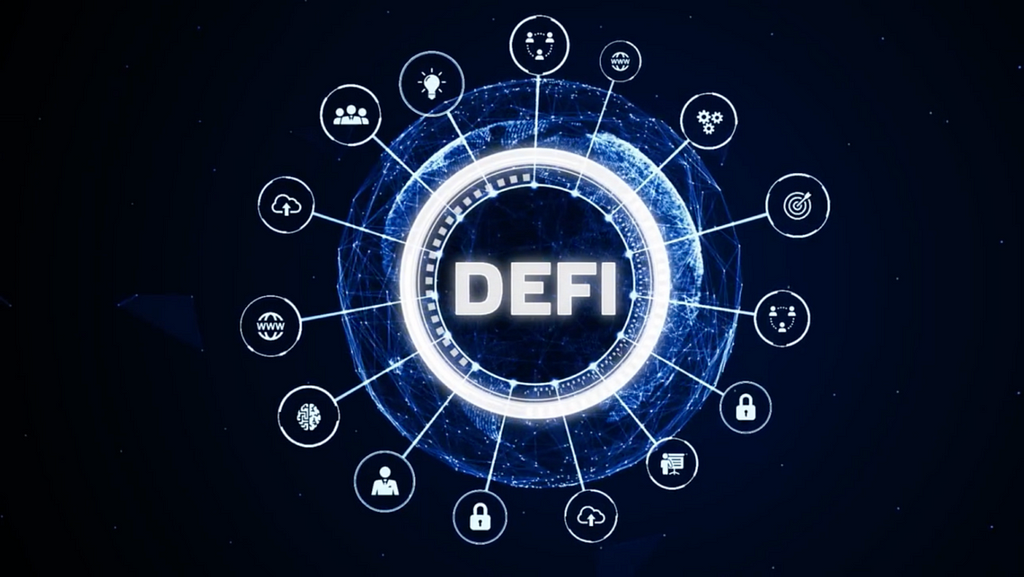
Decentralized Finance (DeFi) has emerged as a transformative force in the financial sector, offering innovative solutions that eliminate intermediaries and provide users with direct control over their assets. However, this new paradigm is not without its challenges, particularly in the realm of security. As businesses and developers venture into DeFi development, understanding these security challenges is crucial to building robust platforms that can withstand potential threats.
What is DeFi?
DeFi refers to a suite of financial services built on blockchain technology, primarily using smart contracts on platforms like Ethereum. These services include lending, borrowing, trading, and earning interest on cryptocurrency without relying on traditional financial institutions. The decentralized nature of DeFi allows for greater accessibility and transparency but also introduces unique security vulnerabilities that must be addressed to protect users and their assets.
Common Security Challenges in DeFi
1. Smart Contract Vulnerabilities:
Smart contracts are the backbone of DeFi applications. However, they are susceptible to coding errors and exploits. Bugs in the code can lead to significant financial losses.
Example: The infamous DAO hack in 2016 resulted in the loss of $60 million due to a vulnerability in the smart contract code.
2. Flash Loan Attacks:
Flash loans allow users to borrow large amounts of cryptocurrency without collateral, provided they return it within a single transaction. This feature can be exploited by attackers to manipulate markets or drain liquidity pools.
Example: In 2020, an attacker used flash loans to exploit vulnerabilities in the bZx protocol, resulting in a loss of $8 million.
3. Oracle Manipulation:
Many DeFi applications rely on oracles to fetch real-world data (e.g., price feeds). If an oracle is compromised or provides inaccurate data, it can lead to incorrect pricing and significant financial losses.
Example: The Compound protocol experienced issues when an oracle provided manipulated price data during a volatile market period.
4. Rug Pulls:
Rug pulls occur when developers abandon a project after attracting significant investment, leaving investors with worthless tokens. This type of fraud has become increasingly common in the DeFi space.
Example: In 2021, the Squid Game token rug pull led to losses exceeding $3 million.
5. Phishing Attacks:
Phishing remains a prevalent threat in the crypto space. Users may be tricked into providing their private keys or seed phrases through fake websites or communications.
Example: Numerous phishing schemes have targeted users of popular DeFi platforms, resulting in stolen funds.
6. Regulatory Risks:
As governments worldwide begin to scrutinize DeFi projects, regulatory compliance becomes a challenge. Non-compliance can lead to legal issues and loss of user trust.
Example: The SEC has taken action against several DeFi projects for failing to comply with securities regulations.
Best Practices for Securing DeFi Platforms
To mitigate these security challenges, developers and businesses should adopt best practices during the development and operation of DeFi platforms:
1. Conduct Thorough Audits:
Engage third-party security firms to audit smart contracts before deployment. Regular audits should also be conducted post-launch to identify potential vulnerabilities.
2. Implement Bug Bounty Programs:
Encourage ethical hackers to identify vulnerabilities by offering rewards for discovered bugs. This proactive approach can help uncover issues before they are exploited.
3. Use Reliable Oracles:
Choose reputable oracle services with a track record of reliability and security. Implement multiple oracles for redundancy and cross-verification of data.
4. Limit Flash Loan Functionality:
Consider implementing restrictions on flash loans or requiring collateral for larger amounts to minimize risks associated with flash loan attacks.
5. Educate Users on Security Practices:
Provide resources and guidance for users on how to protect their assets from phishing attacks and scams.
6. Stay Updated on Regulatory Changes:
Monitor regulatory developments in your jurisdiction and adapt your platform’s compliance measures accordingly.
7. Multi-Signature Wallets:
Utilize multi-signature wallets for managing funds within the platform. This adds an extra layer of security by requiring multiple approvals for transactions.
8. Insurance Options:
Explore decentralized insurance options that can cover losses due to hacks or exploits, providing users with additional peace of mind.
Conclusion
As the DeFi ecosystem continues to grow, addressing security challenges is paramount for developers and businesses involved in this space. By understanding these challenges and implementing robust security measures, companies can build trust with users and create resilient platforms that withstand potential threats.
For businesses looking to develop secure DeFi wallets or explore other blockchain solutions, partnering with an experienced DeFi development company like Codezeros can provide valuable insights and expertise tailored to your needs.
DeFi security challenges and How to ensure your platform is hack-proof was originally published in ILLUMINATION on Medium, where people are continuing the conversation by highlighting and responding to this story.








